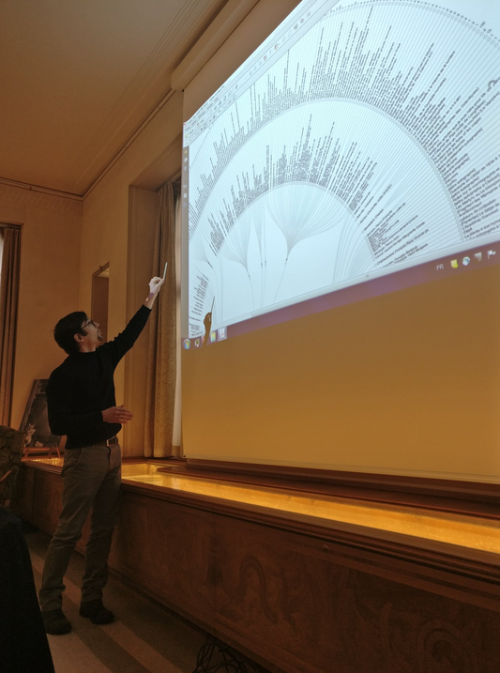- adustion
- alchemy
- Anthropophagy
- Antiochus
- Arthémidore
- Atlas
- bestiaire
- broadsheet
- cabinet of curiosities
- catastrophe
- cerebral melancholy
- crocodile
- Cupid
- delusion
- drugs
- erotic melancholy
- extraordinary cures
- extraordinary patients
- folie des grandeurs
- folly
- glass
- hallucinations
- headless
- hospital
- humours
- hypochondria
- imagination
- love
- lovesickness
- lycanthropy
- mania
- melancholia adusta
- melancholy
- metamorphosis
- museum
- music
- music therapy
- natural history
- over-study
- profession
- pulse
- religious melancholy
- remarkable cure
- Saturn
- snake
- Stratonice
- transformation
- vase
- Venus
- werewolf
About
This project uses an adapted version of Omeka to publish online a collection of case-studies on medicine and melancholy from the Early Modern period.
How did the Renaissance physician position himself in relation to his patient, and how did he attempt to document his ‘clinical’ experiences in writing? The case histories of those suffering from melancholy are instrumental in understanding this issue: tormented by various hallucinations and deliria, the melancholy see what is not there and live in a world of strange delusion, variously believing that they have no head, or are made of brick, or of butter. The patient who famously believed his body to have been transformed into butter feared even approaching the oven (an awkward situation since his line of work was in baking bread), while yet another was convinced he was missing one leg, bitten off by an imaginary crocodile.
Cases such as these are at the heart of our research : we have examined not only early modern medical documents, but also many important collections of commonplace books in our search for case studies, patient descriptions, medical observations, and so-called ‘curative epistles’.
The project aims at combining traditional research methods (research, annotation and publication of early modern texts and documents) with open source tools and standards. This online publication of case studies on medicine and melancholy uses Omeka - the open source content management system.
This website and database are the first attempts at bringing together such case-studies.
The research for this project was prepared at the Paris-Diderot University, under the supervision of Prof. Françoise Lavocat, and was made possible by a post-doctoral funding awarded by the Mairie de Paris for the period 2010-2011. The images contained on this website are used with permission of the Wellcome Library, London and of the British Museum.



 ...
...
